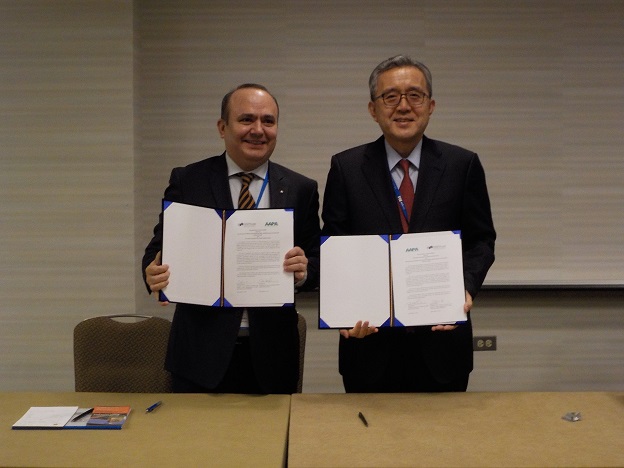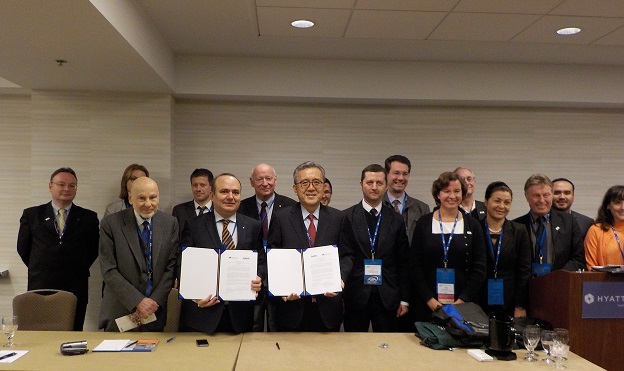| Newsletter / |
|
NISPAcee panel at ASPA conference Chicago 2015 NISPAcee panel was organized on March 7, Saturday, during the ASPA conference in Chicago (March 6-10, 2015). The title of the panel was "Strategic Challenges for Public Administration Schools in Europe and US". The following papers were presented:
Illiberal or simply unorthodox? Public Administration education in Hungary and Europe: A comparative perspective, Gyorgy Hajnal, Corvinus University of Budapest, Hungary Addressing the Public Management Gap at the Subnational Level: How Universities from the US and Romania are Working Together and Learning from Each Other, Roger Hamlin, Michigan State University, US Seeking Excellence in Public Administration Education: the Experience of a Bulgarian University, Polya Katsamunska University of National and World Economy, Sofia, Bulgaria Challenges, Experiences and Effective Practices in Central and Eastern Europe.Academic Partnerships in Public Administration, Marius Profiroiu, prof.Alina Profiroiu,Bucharest University of Economic Studies, Romania Student public administration research teams in a study abroad course: experience at Babes-Bolyai University and University of Delaware. Arno Loessner,University of Delaware, US Public Administration Schools in Romania and CEE: strategic challenges for the future,Calin Hintea, Babes Bolyai University, Cluj Napoca, Romania
The panel had an audience of more than 25 professionals from Europe, US, South America, Asia and Africa. The paper presentations werefollowedby discussions. 
At the end of the panel, the MoUwas signed between NISPAcee, represented by the NISPAcee President, Professor Marius Profiroiu and AAPA (Asian Association for PublicAdministration) represented by the AAPA President, Professor Pan Suk Kim. 
By this
act, there is a wish to enhance relationships between these two associations and to develop a
broad range of interchanges in all areas of research, education, practice, and
other activities, agree to cooperate and work mutually toward the
regionalization and the globalization of both associations. The areas of
cooperation include any programs which
are offered by either association and which are considered feasible for the
development and strengthening of cooperative relationships between the two
associations. Any specific programs for cooperation shall be subject to mutual
consent, the availability of funds, and the approval of each association. Such
programs may include: (1) exchange and dissemination of academic information; (2) exchange of personnel; (3) joint research projects; (4) joint programs; and/or (5) joint seminars and
conferences. |